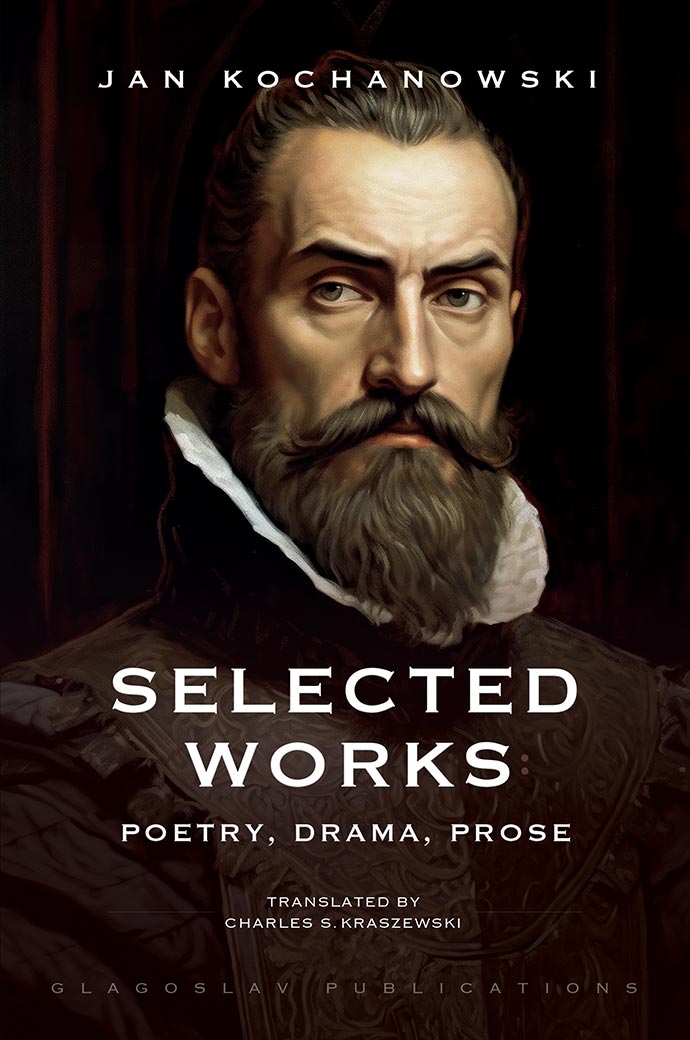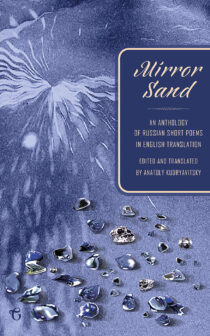Selected Works
Price range: €9.99 through €27.99
POETRY, DRAMA, PROSE
Author: Jan Kochanowski
Translator: Charles S. Kraszewski
Jan Kochanowski is not only the greatest Polish poet before Adam Mickiewicz, he is also one of the great figures of the European Renaissance. Over the space of his rather brief life, he excelled in every literary genre he attempted…
Jan Kochanowski (1530–1584) is not only the greatest Polish poet before Adam Mickiewicz, he is also one of the great figures of the European Renaissance. Over the space of his rather brief life, he excelled in every literary genre he attempted: secular lyric poetry and religious hymns, drama, pithy satires in the vein of Martial, and translations from both the Bible and classical literature. While being the first major voice to shape the modern idiom of Polish, he also wrote in Latin, for which he was recognised abroad by literary lights of the calibre of Pierre Ronsard.
Although little known today outside his country, this anthology of his works translated by Charles S. Kraszewski brings the English reader a wide selection of his literary output in verse, drama, and prose. Generous selections from the Horatian Songs and satirical Trifles accompany the full text of his great humanist drama The Dismissal of the Grecian Envoys, which had its English premiere in 2019 on the boards of Shakespeare’s Globe Theatre in London. Kochanowski is mostly famed for a work he wished he had never written.
These are the Threnodies, a cycle of poems mourning the loss of his little daughter Orszula. It has been said that in this cycle, in which a grieving father so eloquently gives vent to his sorrow at the loss of his child, Kochanowski re-invented the genre of lament, which by his time had become a pallid, formal exercise in writing, devoid of the heartbreaking emotions introduced here by the Polish master. The full cycle of the Threnodies, in Kraszewski’s completely new translation, is here printed for the first time.

| Dimensions | 152 × 229 mm |
|---|---|
| Author | Jan Kochanowski |
| Pages | 214 pages |
| Book Format | Hardcover, Paperback, EPUB, Kindle |
| Publication date | 21th June 2023 |
Author
Jan Kochanowski
Jan Kochanowski (1530–1584) is widely regarded as the greatest Slavic poet of the Renaissance period, and the greatest Polish poet until the advent of Adam Mickiewicz in the nineteenth century. Friend of Pierre Ronsard, widely travelled in Europe, Kochanowski created the modern poetic idiom in Polish, striving, like Horace before him (on whom he modelled his Songs), to achieve immortality through composing in his native language — although he also achieved a widespread fame in Europe for his Latin poems. He was creative in nearly all literary genres, and succeeded splendidly in each he attempted: lyric poetry, such as the Songs and the Trifles, drama (the humanist tragedy The Dismissal of the Grecian Envoys), translation (fragments of Euripides, the Greek Anthology, and Latin poets), narrative poetry (The Satyr), and prose. His greatest claim to fame is a cycle he never wished to write: the Threnodies, a cycle of laments written in honour of his daughter Orszula, who died not quite aged three.
Translator
Charles S. Kraszewski (b. 1962) is a poet and translator. He is the author of three volumes of original verse (Diet of Nails; Beast; Chanameed). Several of his translations of Polish and Czech literature have been published by Glagoslav, among which may be found: Adam Mickiewicz’s Forefathers’ Eve (2016) and Sonnets (2018), Zygmunt Krasiński’s Dramatic Works (2018) and Stanisław Wyspiański’s Acropolis: the Wawel Plays (2017). His translations of the poetry of T.S. Eliot, Robinson Jeffers, and Lawrence Ferlinghetti into Polish have appeared in the Wrocław monthly Odra. He is a member of the Union of Polish Writers Abroad (London) and of the Association of Polish Writers (Kraków). In 2023, he was awarded the ZAiKS prize for Translation into a Foreign Tongue by the Polish Author’s Association (ZAiKS).






